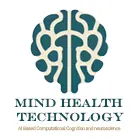How can cognitive science help us make better decisions? One strategy is to be conscious of these mental tools and their potential benefits and pitfalls. Then, depending on the context and goals of each circumstance, we can strive to apply them effectively
In our daily lives, we all encounter complex and uncertain situations, such as deciding on a professional route, investing our money, or dealing with a health issue. In these instances, how do we make decision s? What influences our decision s? And how can we make our decision -making process better?
Cognitive science is the interdisciplinary study of how the mind functions, drawing on psychology, neuro science , philosophy, and artificial intelligence. By studying how people utilize different mental tools to deal with complexity and uncertainty, cognitive science can help us understand and enhance human decision -making.
Heuristics, which are simple rules of thumb that assist us in making rapid and efficient decision s based on little information, are one of these tools. We could, for example, use the availability heuristic to estimate how likely something is based on how easily we can recall examples of it from memory. Heuristics can be useful when we need to make quick decision s under time constraints or cognitive load, but they can also lead to systemic errors or biases when they do not correspond to reality.
Emotions, which are affective states caused by our evaluation of events or outcomes, are another instrument. Emotions can push us to act on our values and aspirations, but they can also impair our reason and objectivity. For example, we may feel regret when we discover we made a poor decision or passed up an opportunity. Regret can help us learn from our mistakes and prevent making the same mistakes again, but it can also cause us to linger on the past or avoid taking risks.
Social influences, which are the consequences of other people's attitudes, behaviors, or expectations on our own judgments, are a third instrument. Social influences can supply us with useful information and feedback, but they can also put us under pressure to conform to or comply with the wishes of others. In a group conversation, for example, we may follow the majority opinion in order to fit in or avoid disagreement. This can lead to "groupthink," a phenomenon in which people suppress their own opinions or critical thinking in favor of reaching a consensus.
How can cognitive science help us make better decision s? One strategy is to be conscious of these mental tools and their potential benefits and pitfalls. Then, depending on the context and goals of each circumstance, we can strive to apply them effectively. As an example:
When employing heuristics, we should consider if they are applicable to the topic at hand and whether there are any other perspectives or sources of information that could call our assumptions into question.
We should acknowledge our emotions without allowing them to overwhelm us or distort our judgment. We should also think about how they will affect other persons engaged in the choice and how they will change over time.When confronted with social influences, we should weigh our own preferences and values against those of others and seek out other viewpoints and perspectives that might help us comprehend.Another approach would be to apply cognitive science methodologies and tools to improve our decision -making abilities. As an example: Before making a final decision , we can employ experiments or simulations to evaluate several hypotheses or situations.
We can organize and show complex information in a clear and relevant manner by using data analysis or visualization tools.Cognitive models or algorithms can be used to emulate human reasoning processes or to produce unique answers.Cognitive science provides a comprehensive framework for investigating how humans make decision s in complicated and unpredictable environments. We can improve the quality and consequences of our decision s by implementing its insights and strategies.

